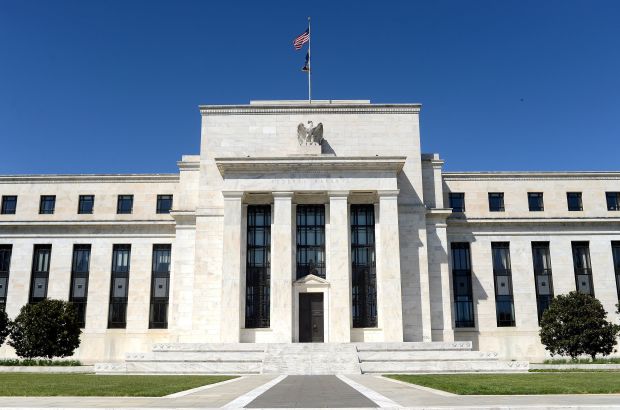In the CEA Talk podcast, cryptocurrency expert Anita Posch talked about different aspects of bitcoin, the blockchain technology revolutionizing the global financial system, the diminishing role of banks, how cryptocurrencies can help overcome Big Brother and why every regulatory plan makes the crypto world stronger.
Host: Balázs Csekő
The invention of bitcoin has solved a problem that the crypto community had for several decades. For a long time, Cypherpunks had been searching for money that could be used online, but they were permanently confronted with the problem of double-spending. Satoshi Nakamoto, the presumed pseudonymous person or persons who developed bitcoin, delivered the answer in 2008.
“This is the biggest chance for humanity”, Ms Posch asserts, who has been dealing with cryptocurrencies for years. “It’s a major chance for human rights, anti-corruption measurements, and for a more peaceful and more fair life together for all the people.”
Bitcoin enables a transparent, open, and permissionless exchange of value. It represents a next step in money and goes against the status quo. Money, as most people know, is centralized and it’s in the hands of governments, their friends and allies. “People in the traditional banking world are profiting from this system.” This makes corruption omnipresent.

The leading cryptocurrency, however, can eliminate corruption. “It has mathematical rules, it’s based on a consensus, but it doesn’t require a centralized actor,” the expert says. The rules of bitcoin can neither be bent nor corrupted and it is a big opportunity for removing inefficiencies. It facilitates the financial inclusion of billions of people without access to banks. “Everyone with a phone can join the system. You don’t even need an ID.”
Blockchain revolution?
The cryptocurrency expert argues that blockchain, the system behind bitcoin, will achieve major changes, but “it can’t revolutionize everything”. The reason for that: the connection between the digital blockchain and real life.
Nevertheless, the blockchain system could be used as an efficient tool against corruption, therefore be productive for democracy. “By applying this kind of technology there wouldn’t be politicians who are vaccinated before they are supposed to,” Ms Posch claims.

Governments and nation states could only profit from the transparent nature of cryptocurrencies. Several regions in Europe have already adopted bitcoin so that citizens can pay their taxes via the crypto technology. “If it was possible to pay my tax in bitcoin, I’d do it,” she says.
Holding politicians accountable could be another advantage of an open blockchain system. If applied by governments, it would make corruption non-existent, public funds more transparent and money flow easily audited. For all these reasons, governments should see bitcoin as a chance and not a danger. “People would also welcome the embracing of new technologies.”
Big Brother watching
Already today, most of the money is digital. Ms Posch doesn’t see any positive side for people using central bank digital currencies. With the adoption of central bank digital currencies, governments could automatically redeem tax from the digital wallet of citizens.
The question of surveillance plays a distinguished role when topics related to cryptocurrencies are discussed. “When I see how the number of right-wing and totalitarian politicians is growing, I am scared,” she says.
China is one of the countries working on its own cryptocurrency. In addition, the Asian behemoth counts with the social credit system where the surveillance of its own citizens happens “day and night.” The essence of the Chinese system lies in the punishment of citizens not following the rules. “That’s a danger I see too, but hope that we still have democratic values.”

Photo credit: Carlyle Ellis, Covenant Grafix
Surveillance is already a reality on the level of the financial regulations. The bank secrecy acts come to other countries because “we all live in this US petro dollar system”. The same is true for companies like Facebook and Google. “Surveillance capitalism” is real, a term coined by Shoshana Zuboff. “We live more and more in a panopticon,” warns Ms Posch.
Bitcoin and privacy coins could mean the way out of this situation. However, money flows can be followed, but bitcoin address are anonymous. This offers a huge chance for people to retain privacy, “an important human right”. Ms Posch sees bitcoin as the “only chance” to have a digital cash that has the same properties as cash.
A reality in the Third World
Cryptocurrencies are seen in the western world more as an investment and a tool for speculation. They have a totally different function in the Third World.
The larger part of the world lives in countries with authoritarian leadership. Many of them don’t allow people to exchange goods with other parts of the world. In some African countries, like Zimbabwe, major inflation is met with local governments aiming at taking away money from their citizens. A lot of remittances arrive in the country via the crypto world. On the other hand, the citizens of Zimbabwe have been using EcoCash, a local online money transfer, for years.

In Nigeria, where Naira, the local currency, is “melting away”, 32 per cent of people have already used cryptocurrencies. Recently, the Nigerian Government has decided that banks should not to allow the bridge role between cryptocurrencies and Naira. The regulation attempts, against the will of the country’s leaders, were met with a growing interest in the crypto world. “Governments can’t ban bitcoin,” Ms Posch claims.
Diminishing role of banks
The global banking and fiat systems are several hundred years old. Most people have never learnt about how the global financial system works, where money comes from, what central banks do, what inflation means, how to invest, and that people profit from the system. “We don’t learn basic financial education in school.” This will all change with cryptocurrencies as customers will not need an intermediary anymore.
The new technology offered by cryptocurrencies will be a major challenge for banks. Many of them, will still be around in the future with some of them adopting bitcoin and other cryptocurrencies. In the US, several banks allow already their clients to use crypto. “It would be a good idea for them to start educating people on these possibilities.”

Banks could be also the victim of governments plans skipping the intermediary role of financial institutions. This possibility is real as central banks could directly send the money to people’s wallets without using the services of traditional banks.
Money printing drives people to crypto
Bitcoin also offers the advantage that, contrary to fiat money, it can’t be inflated as it has a limited amount of 21 million, with 18 million having been mined so far. “Officially we have an inflation of 2 per cent, but if you extend the time frame, we will see the difference,” Ms Posch warns.
The leading cryptocurrency is the digital form of gold and a digital property at the same time. The same reasons that drove people to buy gold before cryptocurrencies, are driving them to act in a similar way with bitcoin.

Due to the scarcity of bitcoin, people have realized that it’s an opportunity to minimize the risk they might be seeing in the future, because in the current financial and economic crisis, ”it can’t be that everything is fine.”
Tesla testing the crypto world
Elon Musk’s recent announcement of his company Tesla investing $1.5 billion in bitcoin is seen by many as a game changer. Ms Posch is more cautious about this move: “He is testing the waters, but I’m not sure if he is a real fan of bitcoin or if he is just gambling. Tesla’s bitcoin investment is definitely a sign that Musk doesn’t trust the American dollar, but it’s only a fraction of his personal wealth”.
Michael Saylor’s, co-founder of MicroStrategy, has recently announced that his company owns over 90,000 bitcoins, investing at roughly $2.2 billion in total since it started purchasing the digital asset in August. Saylor, a leading advocate for bitcoin, has lately educated CEOs of leading global companies interested in bitcoin.

Last week, MicroStrategy, put out another $900 million in bonds for other companies to buy a share of his enterprise. Those enterprises can’t get exposure to bitcoin because they are not allowed by the regulatory rules to buy the cryptocurrency themselves. Therefore, they are buying shares of Microstrategy to be involved in the system.
There is a major difference to the perception of Bitcoin in the past. By now, big corporations, hedge funds, global and investment bankers look at cryptocurrencies as an option. “It’s a big sign when companies like Tesla, Paypal, Mastercard, VISA, and JP Morgan are joining the party,” she says. Another indicator of bitcoin becoming mainstream is the asset’s market capitalization, which, in recent weeks, has surpassed $1 trillion, currently the eight most valuable asset right behind Google.
Illegal activities, fraud, ban?
The crypto world is constantly being accused of permitting illegal activities. Such claims seem to be groundless as different studies by companies specialized in blockchain analysis show. A Chainalysis report of January says only 0.4 per cent of crypto transactions is used for illegal purposes. “The fines that the Deutsche Bank and JP Morgan had to pay for money laundering were larger.”
Some go even further and claim bitcoin is a fraud. Therefore, education is required to tell people how the cryptocurrency and the technology behind it work. “Once you understand how it works, you know it’s not a fraud,” Ms Posch asserts.

There are also voices advocating for more regulation, however, cryptos are already very regulated. “When I want to get bitcoin in exchange for euro, I go to an online exchange to exchange the money there.” The same customer identification process applies for the opening of a bank account. Despite the attempts to put stricter regulations on bitcoin, it is a cryptographic defense mechanism. “Bitcoin will always be the mouse and the government the cat chasing that mouse, but they won’t be able to catch it.”
She dismisses the possibility of a global ban. “Governments can’t even agree on global climate plans.” There are cryptocurrency mines in Pakistan, Iran, Ukraine, Kazakhstan, North America, and China. “Do we really think they will give them up? There is a much bigger chance of a government publicly admitting to own bitcoins “this year or next year”. Every new rule that wants to ban bitcoin just makes it stronger.
Privacy issues
There is a growing need of education on the principles of privacy, human rights, and increasing surveillance. It’s “weird” that regulators and banks are often overregulating, meaning that they have more checks in place as the regulator is asking them. “Over-regulation costs a lot of money and it excludes so many of us that it’s simply not ok,” Ms Posch argues.

Facebook and WhatsApp have had a similar experience in recent months. More and more people have privacy concerns. “A lot of users have switched to Signal because they have realized that they are being gamed.”
Future of global finance
Two decades ago many critics said the internet wouldn’t be here for a long time. “We are around 1995-1997 with bitcoin currently.” Nobody can imagine how global finance will evolve. “If the fiat system doesn’t break down completely, it will have to live together with bitcoin”. The network effect in bitcoin is getting stronger and “you can’t stop it anymore”. The bitcoin adoption will grow with increasing speed.
Cover photo credit: Alesia Kozik, Pexels.com

Anita Posch is a cryptocurrency expert and member of the board at the Vienna-based NGO Bitcoin Austria. She is the author of the book titled Bitcoin & Co., the translator of several books about cryptocurrencies from English to German and she is also the host of “The Anita Posch Show”, a podcast specializing in topics related to Bitcoin and the crypto world. Twitter: @AnitaPosch
Photo credit: www.anitaposch.com



